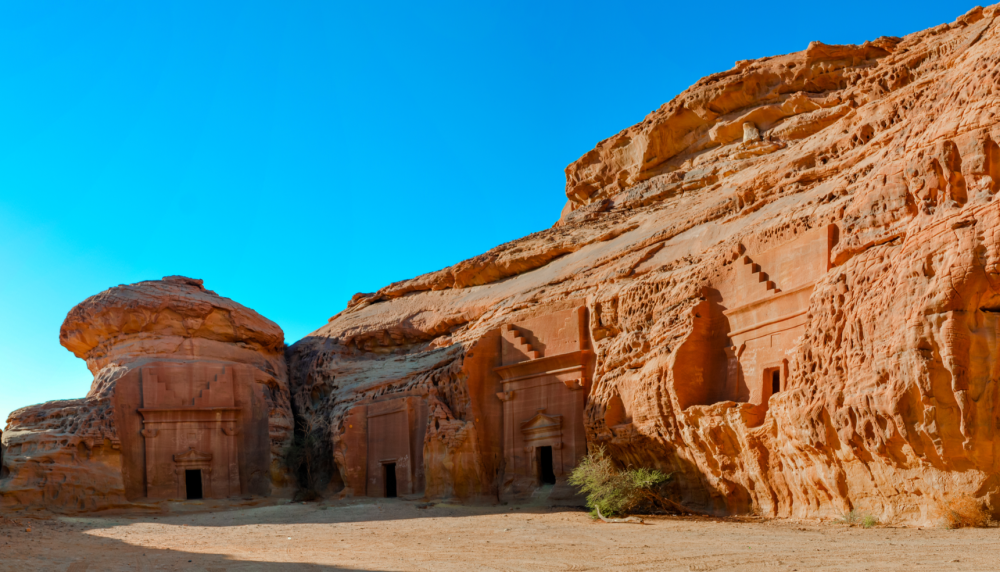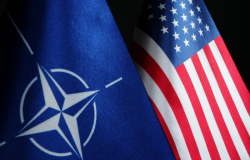Royal Rifts: The History of the Jordanian and Saudi Monarchies

Arabian Historic Place / Sainuddeen Alanthi / Shutterstock.com
When Crown Prince Mohammed bin Salman toured the Arab world in December 2018 in search of support from his Arab peers after being implicated in the murder of Saudi journalist Jamal Khashoggi, one monarch who refused to receive him was Jordan’s King Abdullah II. Even before this slight, relations between Jordan and Saudi Arabia had undergone periodic strains and since then have become openly antagonistic.
But the arrest of Bassem Awadullah, a former head of Abdullah’s royal court and a Jordanian with Saudi citizenship has sparked wide speculation of a Saudi finger in the shaken Jordanian royal pot.
Whether this state of affairs has anything to do with a possible Saudi role on April 3 in what King Abdullah asserted was a coup plot against him by his half-brother, Hamzah bin Al Hussein, is far from clear. But the arrest of Bassem Awadullah, a former head of Abdullah’s royal court and a Jordanian with Saudi citizenship has sparked wide speculation of a Saudi finger in the shaken Jordanian royal pot. Awadullah is presently an advisor to the Saudi crown prince (MBS), who has shown a strong penchant for meddling in the affairs of his Arab neighbors. This has included an invasion of Yemen, a blockade of Qatar, and an attempt to remove Sa’ad Hariri, who also holds Saudi citizenship, as prime minister of Lebanon.
This time, the Saudi government has rushed to affirm its support for the Jordanian King, even sending its foreign minister, Faisal bin Farhan to Amman to show this. But the Washington Post reported that Faisal also sought to convince King Abdullah to allow Awadullah to come back with him to Saudi Arabia. The Saudis quickly denied the report. Breaking his silence on the alleged coup attempt, Abdullah asserted on April 7 that “the sedition” had come from “within our house and outside it” without elaborating where exactly outside is.
More significantly, King Abdullah did not join the Arab quartet blockade against Qatar, which imposed a land, sea and air blockade on the peninsula to force changes in its independent foreign policy.
Whatever the Saudi role, if any, in Hamzah’s alleged plot against the Jordanian monarch, Abdullah has been at loggerheads with de facto ruler of the Saudi kingdom on a number of priority issues. The Jordanian king has shown scant support for the Saudi-led invasion of Yemen, now in its seventh year. And he lobbied strenuously in Washington against the so called “Deal of the century,” a pro-Israeli plan to resolve the Palestinian issue cooked up by former U.S. President Trump’s son-in-law, Jared Kushner, and quietly backed by MBS.
More significantly, King Abdullah did not join the Arab quartet blockade against Qatar, which imposed a land, sea and air blockade on the peninsula to force changes in its independent foreign policy. Jordan remained rather neutral, stressing the need for Arab brotherly unity in response to the crisis. The blockade lasted from June 2017 until January 2021 and was only lifted after the Trump administration applied enormous pressure on both sides, but especially the Saudis.
Well before the blockade ended, however, King Abdullah had invited Qatari ruler, Sheikh Tamim al-Thani to visit Amman; and so he did in February 2020, as the two leaders reaffirmed their strong support for “the Palestinian cause” and specifically for an independent Palestinian state based on the terms of various past U.N. resolutions which, the Trump plan, backed by MBS, had totally ignored. They also “reaffirmed the deep-rooted, brotherly ties” between the two countries which seemed a bit of an exaggeration given their own disagreements, particularly over Qatar’s extensive economic and political ties with Iran.
Jordan has a long history of going its separate way from Saudi Arabia despite the billions of dollars in Saudi donations and loans given after the 2011 Arab Uprisings that threatened the Jordanian monarchy’s stability, particularly after two million Syrian civil war refugees flooded the country.
Saudi rulers have neither forgiven nor forgotten that Abdullah’s father, King Hussein, did not side with them during the 1990-91 Gulf War sparked by the Iraqi invasion of Kuwait. Saudi Arabia and the United States led a coalition of Arab and Western armies, from which Jordan was conspicuously absent, that ousted the Iraqi forces.
Many Saudis believe Jordan chose not to support the Saudis in the Gulf War in revenge for the Saudi seizure of Mecca from the Hashemites and hopes of somehow regaining control of it.
Historians are wont to recall as well that Jordan’s monarchs belong to the Hashemite family that ruled over Mecca and Medina until defeated in battle in 1924 by King Abdulaziz bin Saud, founder of the current Saudi kingdom. (The formal title of the country is the Hashemite Kingdom of Jordan). Many Saudis believe Jordan chose not to support the Saudis in the Gulf War in revenge for the Saudi seizure of Mecca from the Hashemites and hopes of somehow regaining control of it. Many Jordanians, on the other hand, fear MBS is scheming with the Israelis to have Jordan’s custodianship of Islam’s holy places in Jerusalem, al-Aqsa Mosque and the Dome of the Rock, transferred to Saudi Arabia.
Whatever the historical dimensions of strains between the Saudi and Jordanian monarchies, there are clearly more recent causes both sides are purposely ignoring, presumably to avoid adding fuel to the conflict between Abdullah and Hamzah that might set off even more political chaos in the Middle East.
The views expressed in these articles are those of the authors and do not reflect an official position of the Wilson Center.
About the Author


Middle East Program
The Wilson Center’s Middle East Program serves as a crucial resource for the policymaking community and beyond, providing analyses and research that helps inform US foreign policymaking, stimulates public debate, and expands knowledge about issues in the wider Middle East and North Africa (MENA) region. Read more












